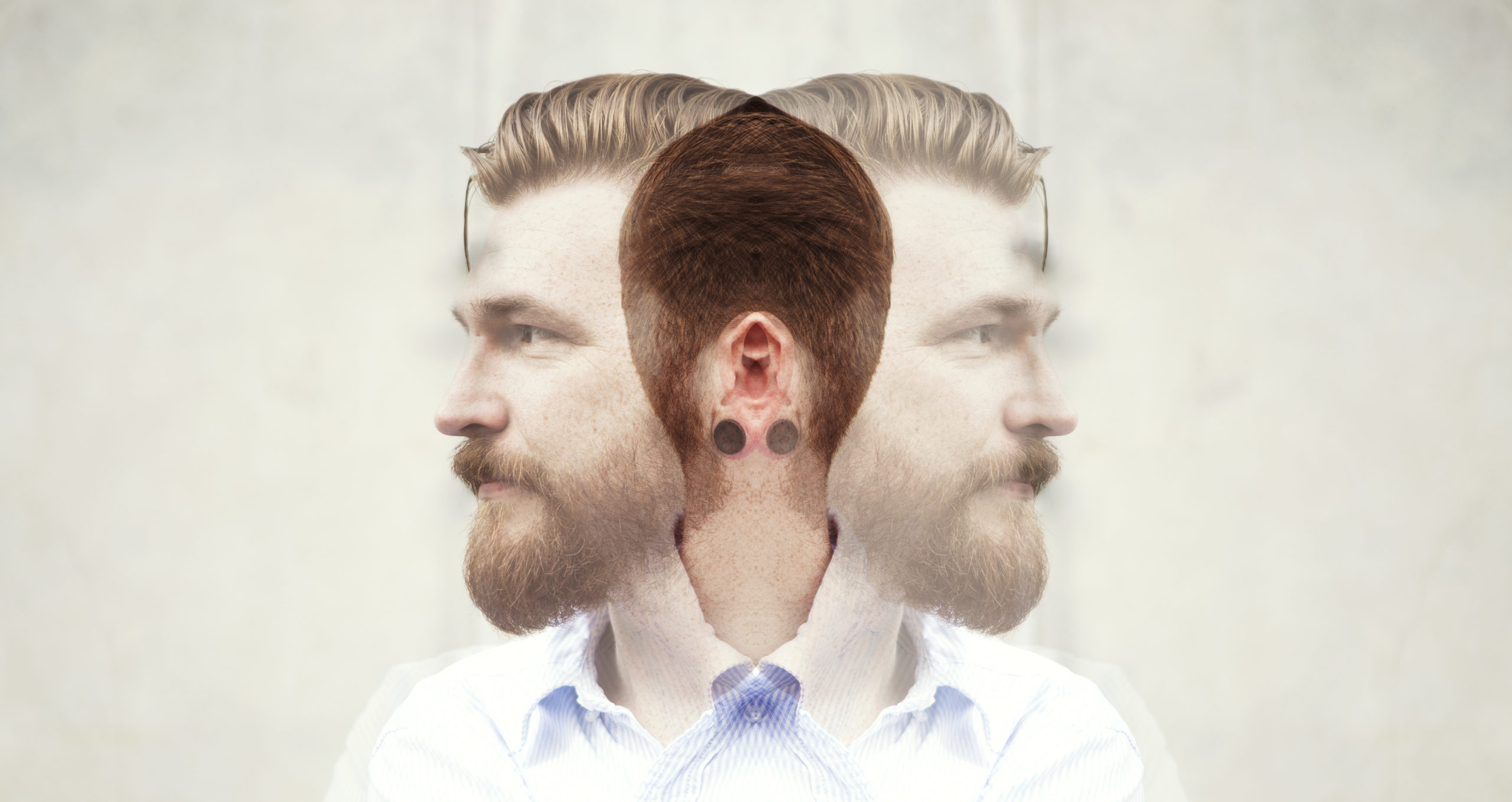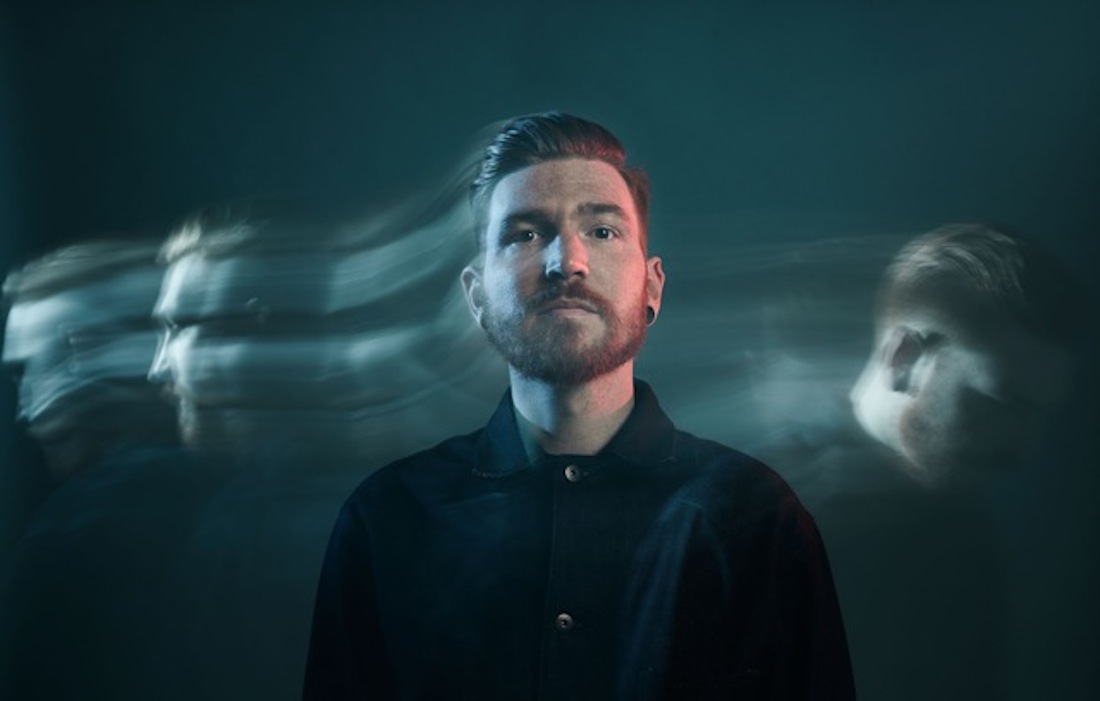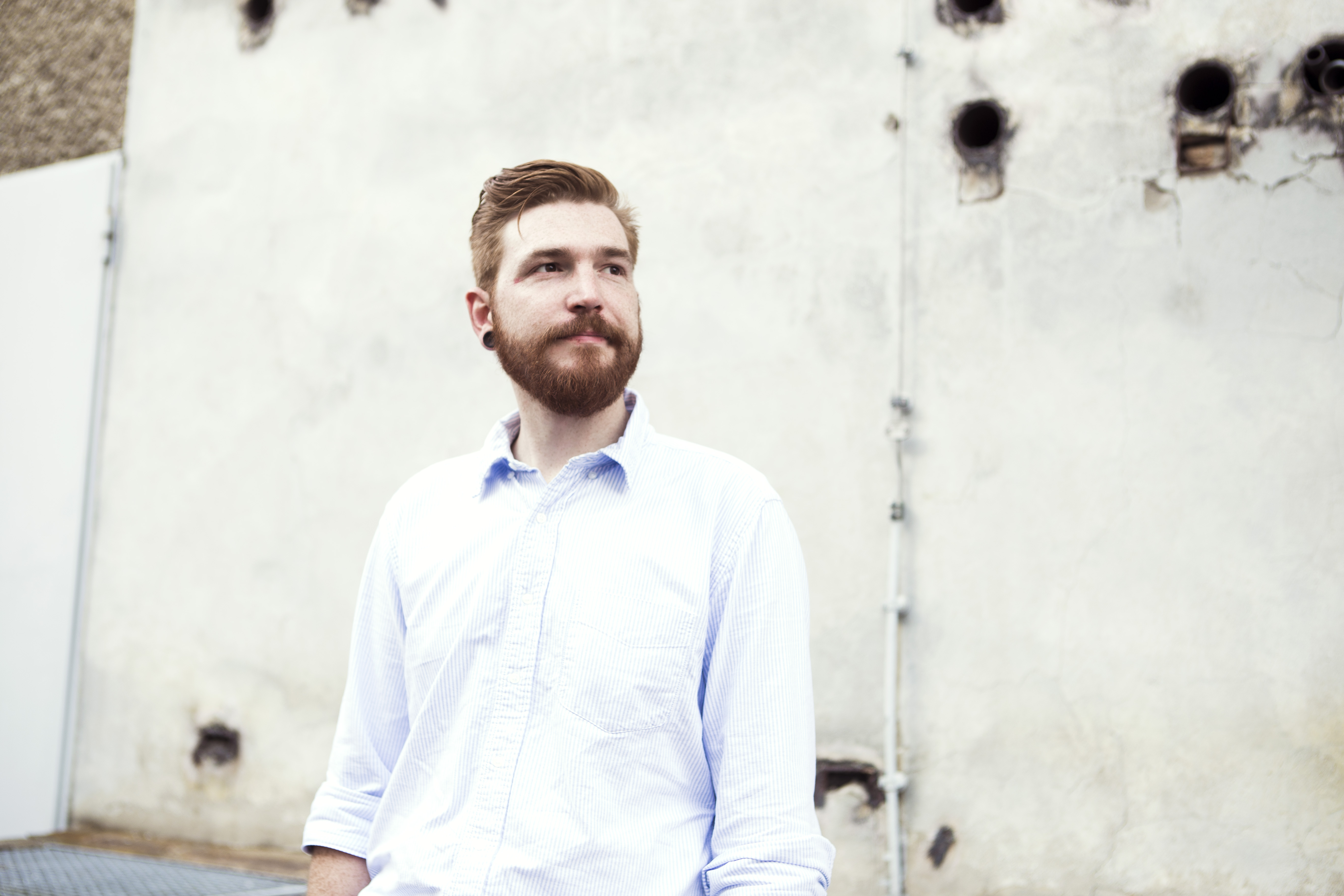Interview: Rødhåd
Going through an artistic transition, the Dystopian boss invites XLR8R to his studio to explain all.

Interview: Rødhåd
Going through an artistic transition, the Dystopian boss invites XLR8R to his studio to explain all.

Mike Bierbach is in holiday mode. Cigarette in hand and grin across his face, he sits in the middle of his gear-riddled studio, nestled on the top floor of a large decrepit warehouse in the east of Berlin. To his right are multiple ash trays, water bottles and empty biscuit packets, scattered along the edges of his large Prophet 08 synthesizer and various MIDI sequencers that occupy almost all of the space. To his left is a guitar, a violin bow and a pair of Sennheiser headphones. The early-evening sun shines through the spattered glass window and onto the large monitor, in the corner of which is a list of DJ playlists, including those from his recent shows at Dekmantel and Dimensions. “I take September off to go to the studio—this is my holiday,” he says, laughing. “It’s a long way to the beach from here!”
Almost four years have passed since Bierbach—known to the masses as Rødhåd—released his first EP and was dubbed Breakthrough Artist of the Year by Resident Advisor. Since then a lot has changed. Long perceived as a “closer,” a tag that stems from his revered mid-morning performances at his Dystopian parties, Bierbach has established himself as one of the world’s most respected DJs, lauded for the quality of his works and acknowledged for his efforts in spending lengthy periods on the road, often playing 15 shows in a month. And 2015 has been no different: Demand for the Berlin-based DJ has only grown over recent times, a development that has coincided with his production work and the growth of his flourishing Dystopian imprint. Following conversations back in June, however, it became clear that times are changing—Bierbach is undergoing something of a transition. Having had some time to recharge following a busy summer, he took some time out of his holiday to discuss his success and elaborate on his plans for the future.
“I have no master plan, but I do want to concentrate more on the studio work because production is becoming a very important vehicle for me to express myself.”
“I am more known for my DJing—and that is where I am better—but I think I have now found a way to express myself with the music that I make,” Bierbach explains, deep in thought. While a string of well-received EPs have heightened his profile as a producer, Bierbach has always self-identified as a DJ. It is his love for spinning records that can be traced back to his earliest years, a time when he first heard The Mix by Kraftwerk and became inspired because the “music never stopped”; he then bought his first turntables at the age of just 15. In contrast, he didn’t release his first record until 2012, a decision that was motivated as much by a desire to provide material for his label as to express himself. But 2015 is likely to see him consciously limit his touring schedule to allow himself more time in his beloved studio. “I have no master plan, but I do want to concentrate more on the studio work because production is becoming a very important vehicle for me to express myself,” he explains. “I’ve invested a lot of time and money in the studio—and I feel I have still a lot to learn in there.”
Inevitably, these kinds of statements will only fuel rumors that 2016 will see a Rødhåd full-length. From a production standpoint, Bierbach’s output has been reasonably consistent since his debut 12-inch, but the quality of his work has seen expectation mount—something that he is keen to address. “For a long time, I have felt a pressure to do an album—and now I actually want to do one because I have something to say,” he explains. “But an album is a big thing. It’s very difficult to make a good techno LP, and I think that only now do I feel technically good enough to produce one. I was happy with my latest EP,” he adds, “and that is the first time I discovered the ambient sound that I wanted to achieve.”

Closely linked to this evolution is his live set. Though it remains in its beta phase, the Rødhåd live project has been in the works for some time—and he is only too enthused to share the fruits of his recent labors. Opening up his laptop and plugging in a small portable hard drive—that catalogs his entire discography—he plays a few minutes of a recent trial run before smiling, closing the laptop, and inviting assessment. “I am producing in a way that is compatible with a live set, but creating a show that will keep the crowd’s attention is extremely challenging,” he explains. “A live set is something that is really special, and it is definitely something I intend to do—but I don’t really know how to yet.”
Bierbach, however, is keen to point out that this diversification of his repertoire in no way marks the end of his growth as a record selector. DJing will never be replaced by these other ventures; rather it will act as the foundation upon which he can now begin to explore these other vehicles of self-expression. His desire to develop as a DJ remains strong as he works to further refine his skill-set. Instead of abstaining from the mixing when not on tour, he admits to investing a lot of time in his DJ-set preparations, and practice remains a key part of his daily routine.
“Each individual record that I play will will take the mood in a certain direction and by connecting these tracks together, I can create certain moments,” he explains. “You have to work hard to create the opportunity to play a certain track. Sometimes I will get these connections wrong and this will interrupt the chain—it’ll just go bam and I’ll know immediately that it didn’t work. But that is why I have to practice at home: I have to figure out how one track will connect with the other tracks because I want to build these waves perfectly.”

Anybody who has seen Bierbach play on more than one occasion will also have noted the diversity in his output. Adaptation to the environment is a fundamental part of being a successful selector, but a Rødhåd festival set is almost incomparable with one of his more intimate showcases—and he accepts that he is still looking to locate the balance between the music that makes people scream and the more ambient sound that he enjoys. “Sometimes I will wonder why these festivals are booking me—especially when I play between two artists who are completely different to the music that I am playing,” he explains. “I have to learn that I can play a bit more weird stuff, because now people know the music that I am playing and they book me because of that.”
Equally central to this progression is innovation. Though infused with a beautiful concoction of differing genres, there is unquestionably a Rødhåd signature—a common ingredient to each record that he plays out—and finding material that fits into this ill-defined sonic mold is something that is proving challenging. “I am playing a lot of stuff that I get from promo ports, but I am missing stuff that is really recognizable,” he explains. “There are so many producers and so many tracks out every week, but its getting harder to find something different,” he adds. “It feels like all the techno hits have been written already—like the Carl Craig stuff, which came from the end of the ‘90s. Maybe people have fear of something different.”
As the conversation progresses, it becomes clear that Bierbach is enjoying the artistic freedom that his recent successes have afforded him. While pressure and expectation are by-products of such widespread achievements, he perceives the opportunities to express himself in ways that were not previously possible as a just reward for his efforts. Symbolic of the shift is his Howling remix, a stunning take on the original that drew a stark contrast to his latest Kinder Der Ringwelt EP and ventured closer to commercial pastures than any of his previous material. “For me as an artist, it’s important that I can do different things,” he explains. “When I put a record together I will always be thinking, who will play it? But I feel more free now to experiment in the studio, and also produce stuff that is not for the dancefloor. I want to do house, techno, broken beats and lots of other stuff—and I want to be able to play at big festivals, but also at small clubs in front of 300 people. It’s a continual balance for me.”
Reflecting on his sound, it’s hard not to spot the striking contrast with Bierbach’s jovial character. Laced throughout his discography—and ever-present in his brooding DJ sets—is a nebulous yet intense darkness. Sitting there before the interview, sipping on his coffee and eating his eggs on toast—part of his mid-morning holiday ritual before cycling to his studio—he tells brazen tales from the road, and smiles as he reveals that his mother will be joining him on the road for his upcoming dates in Australia and Japan. “She will be part of my new Rødhåd band!” he jokes. But if this is so, if music is nothing more than a natural reflection of its creator, then from where does this dramatic tone originate?
“I am a happy person, but I love melancholy because it touches my heart,” he explains. “I think sadness touches me far more than any other emotion. It doesn’t mean that I am unhappy—but I just cannot connect emotionally with happy records,” he adds. “Happy music just sounds boring to me and I have to switch it off!”
As with all successful artists, however—and while his carefree attitude may lead one to believe otherwise—Bierbach cares deeply about what he is trying to achieve, and his motivations remain as untarnished as when he occupied early residencies at local Berlin hot spots Golden Gate and Zementgarten. As he begins to discuss the future plans of the Dystopian imprint, a project that he runs with two close friends, it’s clear that while he may not have a grand vision for how he wishes his career to unfold, it’s far more than just a trivial pursuit. “I don’t want to be a super-famous DJ or a super-famous producer who only releases hits,” he explains.” I do it for myself, and if people want it then they will buy it, and if they don’t then that is just how it is. For Bierbach, the inevitable celebrity that accompanies success are mere burdens to his self-development, responsibilities to which he must attend if he is to continue his quest for musical exploration.
“Social media is still weird to me—all this importance in posting and tagging and liking,” he says. “I would just play in clubs and not use social media, but I also understand that I am at a certain point where I need to communicate and interact with my supporters and the people who want to know more about me. I can only try to play the game with my rules. I am no longer an underground artist—and I don’t think there is even an underground in techno music anymore. Everything is so easy to access, with dozens of interviews and podcasts all archived.”
Standing up and sparking another cigarette—he might be into his second packet at this point—Bierbach moves towards the window to get some fresh air. Looking slightly puzzled, but still smiling, he exhales deeply, trying to find an occupation of his that is not closely related to music. “I’m not too sure if I do anything else [besides music]—even when I watch a film I am thinking about the soundtrack,” he says, grinning once again. And then his eyes light up and as he moves to the corner of the room, rustling through the shelving in search of something. “Actually I have this holiday project—I’m building this synthesizer for myself,” he says, looking up with pride.
“Oh shit—that’s music too, isn’t it?”
Header photo: Jill Bettendorff

